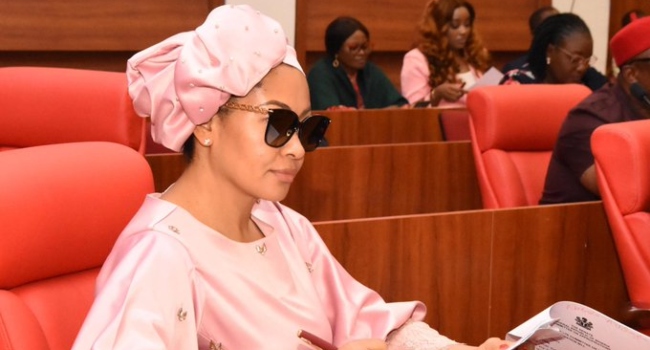
In a predictable ruling with significant constitutional and political implications, the Federal High Court in Abuja has ordered the Nigerian Senate to immediately recall Senator Natasha Akpoti-Uduaghan, describing her six-month suspension from the red chamber as excessive, punitive, and unconstitutional.
Delivering judgment on Friday, Justice Binta Nyako ruled that while the Senate has disciplinary powers, such sanctions must not infringe on the rights of constituents to representation or violate fair legislative process.
“A six-month suspension effectively strips the people of Kogi Central of their right to be represented in the National Assembly for the entirety of the legislative sitting calendar,” Nyako held.
The court ruled that Chapter 8 of the Senate Standing Rules and Section 14 of the Legislative Houses Powers and Privileges Act—cited to justify the suspension—were overreaching and lacked provisions on the maximum duration for such sanctions.
Context: The Power Play Behind the Suspension
Senator Akpoti-Uduaghan (PDP-Kogi Central) was suspended on March 6, 2025, following a heated row with Senate President Godswill Akpabio. The flashpoint came after she accused Akpabio of sexual harassment and abuse of office, a claim that triggered political outrage and disciplinary proceedings against her.
The Senate, invoking its amended Standing Orders, suspended her for alleged misconduct during plenary, particularly over her repeated defiance of seating protocols and public accusations against the Senate President.
But the court disagreed with the Senate’s position, asserting that her suspension violated her constitutional mandate and represented a breach of democratic norms.
Judicial Balancing Act: Rights, Discipline, and Due Process
While upholding the Senate’s general authority to discipline erring members, Justice Nyako ruled that such powers must be exercised proportionately, and with clear guidelines.
“You cannot, in punishing a member, disenfranchise an entire senatorial district. Discipline must not defeat democracy,” the judge stated.
However, the court also held that Akpoti-Uduaghan must apologise to the Senate, acknowledging that Senate President Akpabio was not wrong in denying her the floor during the disputed plenary session since she was not seated at her designated spot.
N5 Million Fine and Apology Mandate
In a stern warning against flouting judicial orders, the court imposed a ₦5 million fine on Senator Akpoti-Uduaghan for violating a previous order barring all parties from making public comments on the ongoing litigation.
The court cited her “satirical apology” posted on her Facebook page on April 27 as contemptuous, and directed that she must publish an unreserved apology in two national dailies and on her Facebook page within seven days to purge herself of contempt.
Civil Society Reacts: “Obey the Court”
Reacting to the judgment, Faith Nwadishi, Executive Director of the Centre for Transparency Advocacy (CTA), urged the Senate to immediately comply with the ruling.
“No one is above the law. Since this is a court pronouncement, I expect the Senate to obey without hesitation,” Nwadishi said.
He criticized the political escalation of the matter and urged both parties to focus on legislative duties and democratic consolidation.
The Broader Implication: Rule of Law vs Political Power
This ruling marks a critical test of Nigeria’s constitutional framework, particularly regarding the separation of powers and judicial oversight over legislative conduct.
While the Senate may argue internal autonomy, the court has drawn a line—legislative privilege does not confer absolute power, especially when it undermines the rights of voters and threatens democratic accountability.
The case also reinforces the importance of checks and balances within Nigeria’s evolving democratic architecture and may set a precedent for how legislatures across all tiers of government handle internal discipline.
BRANDECONOMY Analysis: Politics, Law, and the Business of Governance
From a governance standpoint, this saga reveals how political theatrics, if left unchecked, can derail institutional credibility and disrupt national legislative priorities. For investors, development partners, and policy stakeholders, predictability in democratic institutions is critical to long-term stability.
With Nigeria’s global image still contending with rule-of-law concerns, the judiciary’s intervention in the Natasha-Akpabio face-off provides reassurance that legal redress remains possible, even in politically sensitive matters.











